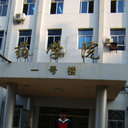Neuroprotective effects of progesterone following stroke in aged rats.
Keywords
Abstract
Recent studies indicate that progesterone (PROG) protects against animal brain injury, including ischemic stroke, in various animal models. However, there are insufficient studies about PROG in other various groups such as ovariectomized females and aged animals. This study was designed to examine the efficacy of PROG on infarct volume, brain water content and functional outcome after cerebral ischemia in aged rats. Thirty-six male aged Sprague-Dawley rats underwent permanent middle cerebral artery occlusion (pMCAO) with the intraluminal filament technique and sham operation. After induction of pMCAO, the rats received an initial intraperitoneal injection of PROG (8mg/kg) or vehicle at 1h post-occlusion followed by subcutaneous injections at 6, 24 and 48h. Functional deficits were tested with Zea Longa and Rotarod test at 24, 48 and 72h after pMCAO. The rats were killed 72h after surgery and infarct volume were determined with 2,3,5-triphenyltetrazolium chloride (TTC) staining and digital image analysis. Brain water content was determined by the dry-wet weight method. PROG-treated rats showed a substantial reduction in the volume of the infarction (% contralateral hemisphere) and brain water content compared to vehicle-treated rats. In addition, there was a significant improvement in ability to remain on an accelerating rotarod and increased Zea Longa scores observed in the pMCAO rats treated with PROG compared to vehicle. These findings point to the response of aged adult rats to PROG in cerebral ischemia, and suggest that such response need to be considered in the development of neuroprotective agents for stroke.




